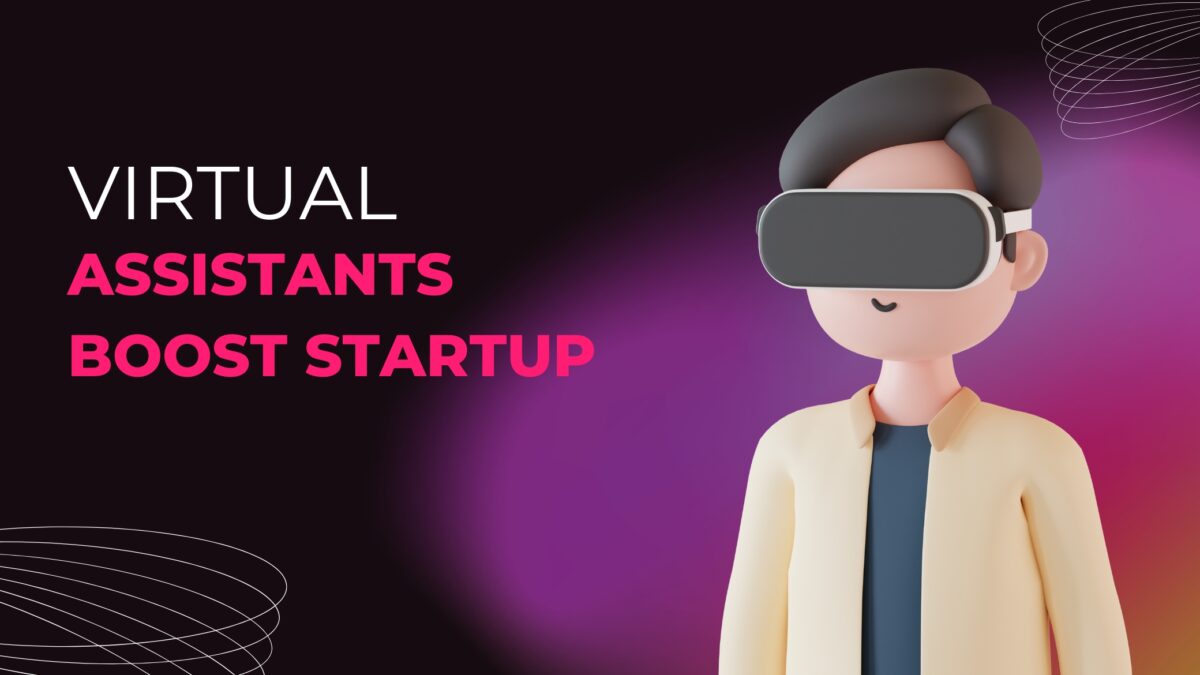
The world of Business Process Outsourcing (BPO) is on
the brink of a digital revolution. As technology continues to advance at
breakneck speed, traditional BPO setups are being forced to evolve or risk becoming
obsolete. But what does this mean for businesses, employees, and the industry
as a whole?
Imagine a future where artificial intelligence seamlessly
handles customer inquiries, blockchain ensures unparalleled data security, and
virtual reality transforms remote collaboration. This isn't science
fiction—it's the emerging reality of BPO in the digital age. As we
stand at this technological crossroads, it's crucial to understand how these
changes will reshape the landscape of outsourcing and what it means for your
business.
In this blog, we'll explore the evolution of BPO in the
digital era, delve into the key technologies driving this transformation, and
examine the new service models that are emerging. We'll also discuss strategies
for adapting to this digital shift and uncover both the challenges and exciting
opportunities that lie ahead in the world of digital BPO. Are you ready to
glimpse into the future of outsourcing? Let's jump in!
The Evolution of BPO in the Digital Age
The Business Process Outsourcing (BPO) industry has
undergone a remarkable transformation in recent years, driven by rapid
technological advancements and changing market demands. This evolution has
reshaped the way BPO services are delivered and consumed.
From traditional call centers to tech-driven solutions
Traditional call centers have given way to sophisticated,
technology-driven solutions that offer a wider range of services and improved
efficiency. This shift has been characterized by:
- 2. Implementation
of advanced analytics for performance optimization
- 3. Adoption
of cloud-based infrastructure for scalability and flexibility
|
Traditional
Call Centers |
Tech-Driven
BPO Solutions |
|
Voice-only support |
Omnichannel support (voice, email, chat, social media) |
|
Limited data analytics |
Advanced analytics and AI-driven insights |
|
On-premise infrastructure |
Cloud-based scalable solutions |
|
Manual processes |
Automated workflows and robotic process automation |
Rise of remote work and its influence on BPO
setup
The global pandemic accelerated the adoption of remote work
models, significantly impacting BPO operations:
- 1. Increased
flexibility in workforce management
- 2. Expanded
talent pool across geographical boundaries
- 3. Reduced
overhead costs associated with physical infrastructure
- 4. Enhanced
business continuity and disaster recovery capabilities
Impact of AI and automation
on BPO processes
Artificial Intelligence (AI) and automation technologies
have revolutionized BPO processes, leading to:
- 1. Improved
efficiency and accuracy in routine tasks
- 2. Enhanced
customer experience through personalized interactions
- 3. Reduced
operational costs and increased scalability
- 4. Shift
in workforce skills towards more complex, value-added tasks
As we move forward, the integration of these technologies
will continue to reshape the BPO landscape, driving innovation and creating new
opportunities for service providers and clients alike.
Key Technologies Shaping the
Future of BPO
Now that we've explored the evolution of BPO in the digital
age, let's dive into the key technologies that are revolutionizing the
industry.
A. Data Analytics and Predictive Modeling
Data analytics and predictive modeling are transforming BPO
operations by enabling:
1. Improved decision-making
- 2. Enhanced
customer insights
- 3. Optimized
resource allocation
Companies leveraging these technologies can:
- 1. Forecast
customer demand
- 2. Identify
potential issues before they arise
- 3. Personalize
services based on individual preferences
|
Benefits |
Examples |
|
Increased efficiency |
Predictive maintenance |
|
Cost reduction |
Inventory optimization |
|
Enhanced customer satisfaction |
Personalized recommendations |
B. Robotic Process Automation (RPA) for Increased Efficiency
1. RPA is revolutionizing BPO by automating repetitive tasks,
leading to:
- 2. Reduced
errors
- 3. Faster
processing times
- 4. Increased
productivity
C. AI-Powered Chatbots and Virtual Assistants
1. AI-driven chatbots and virtual assistants are enhancing
customer service by:
- 2. Providing
24/7 support
- 3. Handling
multiple inquiries simultaneously
- 4. Learning
from interactions to improve responses
D. Cloud-Based Infrastructure for Seamless Operations
Cloud technology is enabling BPO providers to:
2. Enhance collaboration
3. Improve data security and accessibility
These key technologies are reshaping the BPO landscape,
offering new opportunities for efficiency and innovation. Next, we'll explore
the emerging BPO service models that are capitalizing on these technological
advancements.
Emerging BPO Service Models
As the business process outsourcing (BPO) industry continues
to evolve, new service models are emerging to meet the changing needs of
organizations in the digital age. Let's explore three innovative BPO service
models that are gaining traction:
A. Platform-based BPO solutions
Platform-based BPO solutions leverage cutting-edge
technology to streamline processes and enhance efficiency. These solutions
offer:
1. Scalability: Easily adjust resources based on demand
2. Integration: Seamlessly connect with existing systems
3. Analytics: Gain valuable insights through data-driven decision-making
Here's a comparison of traditional BPO vs. platform-based
BPO:
|
Feature |
Traditional
BPO |
Platform-based
BPO |
|
Flexibility |
Limited |
High |
|
Scalability |
Manual |
Automated |
|
Technology |
Legacy systems |
Cloud-based, AI-driven |
|
Data insights |
Basic reporting |
Advanced analytics |
B. Legal Process Outsourcing (LPO)
Legal Process Outsourcing is a specialized form of BPO that
focuses on providing legal support services to law firms and corporate legal
departments. LPO services include:
1. Contract review and management
2. Legal research and analysis
3. Intellectual property services
4. Litigation support
C. Knowledge Process Outsourcing (KPO)
Knowledge Process Outsourcing takes BPO to the next level by
focusing on high-value, knowledge-intensive tasks. KPO services typically
involve:
1. Market research and analysis
2. Business intelligence and data analytics
3. Financial modeling and valuation
4. Research and development support
These emerging BPO service models offer organizations new
ways to optimize their operations, reduce costs, and gain access to specialized
expertise. As we move forward, we'll explore how businesses can adapt their
strategies to leverage these innovative BPO solutions in the digital world.
Adapting BPO Strategies for
the Digital World
As technology continues to reshape the BPO landscape,
businesses must adapt their strategies to remain competitive. Let's explore how
BPO providers can leverage digital tools and approaches to enhance their
services and meet evolving client expectations.
Leveraging Big Data for Personalized Services
Big data analytics has become a game-changer in the BPO
industry. By harnessing vast amounts of customer data, BPO providers can offer
highly personalized services tailored to individual client needs. This approach
not only improves customer satisfaction but also increases operational
efficiency.
Benefits of big data in BPO:
- 1. Predictive analytics for proactive customer service
- 2. Customized solutions based on client behavior patterns
- 3. Improved
decision-making through data-driven insights
Implementing Cybersecurity Measures
With the increased reliance on digital platforms,
cybersecurity has become a top priority for BPO providers. Implementing robust
security measures is crucial to protect sensitive client data and maintain
trust.
|
Cybersecurity
Measure |
Description |
|
Multi-factor authentication |
Adds an extra layer of security to access controls |
|
End-to-end encryption |
Ensures data privacy during transmission and storage |
|
Regular security audits |
Identifies and addresses potential vulnerabilities |
|
Employee training |
Educates staff on best practices for data protection |
Embracing Omnichannel Support
Modern customers expect seamless interactions across
multiple channels. BPO providers must adopt an omnichannel approach to deliver
consistent and integrated support across various platforms.
Upskilling Workforce for Tech-Driven Roles
As automation and AI technologies become more prevalent, BPO
employees need to adapt to new roles that require technical expertise.
Investing in upskilling programs helps create a workforce capable of managing
and optimizing digital processes.
Focus on Digital-First Customer Experiences
To meet the expectations of tech-savvy customers, BPO
providers should prioritize digital-first experiences. This includes:
1. Self-service portals for common inquiries
2. AI-powered chatbots for 24/7 support
3. Virtual and augmented reality for enhanced customer interactions
By implementing these strategies, BPO providers can position
themselves at the forefront of the digital revolution, offering innovative and
efficient services that meet the evolving needs of their clients.
Challenges and Opportunities in Digital BPO
A. Capitalizing on emerging markets
As the digital BPO landscape evolves, emerging markets
present both challenges and opportunities. These markets offer cost-effective
talent pools and untapped potential for growth. However, companies must
navigate cultural differences and varying technological infrastructures.
|
Opportunity |
Challenge |
|
Access to skilled workforce |
Language and cultural barriers |
|
Lower operational costs |
Infrastructure limitations |
|
Untapped market potential |
Regulatory complexities |
B. Navigating global regulations
The digital era brings a complex web of international
regulations that BPO providers must navigate. Compliance with data protection
laws, labor regulations, and industry-specific standards is crucial.
1. GDPR in Europe
2. CCPA in California
3. Data localization laws in various countries
C. Addressing data privacy concerns
With the increasing focus on data privacy, BPO providers
must prioritize robust security measures and transparent data handling
practices.
1. Implement end-to-end encryption
2. Conduct regular security audits
3. Provide staff training on data protection
4. Develop clear data handling policies
D. Balancing automation with human touch
While automation drives efficiency, maintaining a human
element is crucial for customer satisfaction and complex problem-solving.
|
Automation
Benefits |
Human
Touch Benefits |
|
Increased
efficiency |
Emotional
intelligence |
|
24/7
availability |
Complex
problem-solving |
|
Cost
reduction |
Personalized
service |
Finding the right balance between automated processes and human interaction is
key to successful digital BPO operations. This balance ensures optimal
efficiency while maintaining the quality and personalization that customers
expect.




